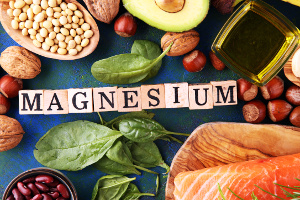afterLoad (456.36KB) (5.14ms)
afterInitialise (1.27MB) (64.26ms)
afterRoute (856.63KB) (23.19ms)
beforeRenderComponent com_content (35.4KB) (8.62ms)
Before Access::preloadComponents (all components) (68.65KB) (5.26ms)
After Access::preloadComponents (all components) (98.44KB) (4.19ms)
Before Access::getAssetRules (id:8 name:com_content) (1.13KB) (28μs)
After Access::getAssetRules (id:8 name:com_content) (7.05KB) (73μs)
afterRenderComponent com_content (1.28MB) (437ms)
afterDispatch (17.53KB) (29.98ms)
beforeRenderRawModule mod_articles_category (READ MORE...) (383.51KB) (43.27ms)
afterRenderRawModule mod_articles_category (READ MORE...) (84.63KB) (268ms)
beforeRenderRawModule mod_tags_popular (Search) (4.81KB) (52μs)
afterRenderRawModule mod_tags_popular (Search) (10.1KB) (136ms)
beforeRenderRawModule mod_custom (Remember to download Heart Healthy Seniors) (816B) (42μs)
afterRenderRawModule mod_custom (Remember to download Heart Healthy Seniors) (4.22KB) (7.39ms)
beforeRenderRawModule mod_custom (Get additionel and more detailed knowledge ) (752B) (32μs)
afterRenderRawModule mod_custom (Get additionel and more detailed knowledge ) (1.67KB) (47μs)
beforeRenderRawModule mod_custom (BOOST YOUR IMMUNE DEFENSE) (608B) (13μs)
afterRenderRawModule mod_custom (BOOST YOUR IMMUNE DEFENSE) (928B) (26μs)
beforeRenderRawModule mod_custom (Are you taking supplements) (736B) (10μs)
afterRenderRawModule mod_custom (Are you taking supplements) (1.03KB) (20μs)
beforeRenderRawModule mod_custom (Antiaging) (720B) (9μs)
afterRenderRawModule mod_custom (Antiaging) (1.02KB) (19μs)
beforeRenderRawModule mod_custom (Exercise) (720B) (9μs)
afterRenderRawModule mod_custom (Exercise) (1.02KB) (19μs)
beforeRenderRawModule mod_custom (Check this before you buy a Q10 product) (752B) (9μs)
afterRenderRawModule mod_custom (Check this before you buy a Q10 product) (944B) (19μs)
beforeRenderRawModule mod_custom (Chronic fatigue tied Alan to his bed but Q10 capsules saved him:) (260.6KB) (15.91ms)
afterRenderRawModule mod_custom (Chronic fatigue tied Alan to his bed but Q10 capsules saved him:) (960B) (68μs)
beforeRenderModule mod_custom (Chronic fatigue tied Alan to his bed but Q10 capsules saved him:) (768B) (6μs)
afterRenderModule mod_custom (Chronic fatigue tied Alan to his bed but Q10 capsules saved him:) (1.3KB) (76μs)
beforeRenderRawModule mod_custom (Cholesterol-lowering without side effects:) (368B) (12μs)
afterRenderRawModule mod_custom (Cholesterol-lowering without side effects:) (2.19KB) (25μs)
beforeRenderModule mod_custom (Cholesterol-lowering without side effects:) (752B) (2μs)
afterRenderModule mod_custom (Cholesterol-lowering without side effects:) (1.28KB) (28μs)
beforeRenderModule mod_articles_category (READ MORE...) (21.32KB) (5.45ms)
afterRenderModule mod_articles_category (READ MORE...) (1.25KB) (106μs)
beforeRenderModule mod_tags_popular (Search) (5.17KB) (21μs)
afterRenderModule mod_tags_popular (Search) (1.27KB) (28μs)
beforeRenderModule mod_custom (Remember to download Heart Healthy Seniors) (1.17KB) (16μs)
afterRenderModule mod_custom (Remember to download Heart Healthy Seniors) (1.3KB) (23μs)
beforeRenderModule mod_custom (Get additionel and more detailed knowledge ) (368B) (11μs)
afterRenderModule mod_custom (Get additionel and more detailed knowledge ) (1.3KB) (21μs)
beforeRenderModule mod_custom (BOOST YOUR IMMUNE DEFENSE) (224B) (11μs)
afterRenderModule mod_custom (BOOST YOUR IMMUNE DEFENSE) (1.28KB) (20μs)
beforeRenderModule mod_custom (Are you taking supplements) (352B) (9μs)
afterRenderModule mod_custom (Are you taking supplements) (1.28KB) (19μs)
beforeRenderModule mod_custom (Antiaging) (336B) (10μs)
afterRenderModule mod_custom (Antiaging) (1.27KB) (19μs)
beforeRenderModule mod_custom (Exercise) (336B) (9μs)
afterRenderModule mod_custom (Exercise) (1.25KB) (19μs)
beforeRenderModule mod_custom (Check this before you buy a Q10 product) (352B) (10μs)
afterRenderModule mod_custom (Check this before you buy a Q10 product) (1.28KB) (19μs)
beforeRenderRawModule mod_menu (Main menu-US) (20.94KB) (5.88ms)
afterRenderRawModule mod_menu (Main menu-US) (152.04KB) (12.2ms)
beforeRenderModule mod_menu (Main menu-US) (720B) (8μs)
afterRenderModule mod_menu (Main menu-US) (4.36KB) (90μs)
beforeRenderRawModule mod_languages (Sprogskift) (3.44KB) (27μs)
afterRenderRawModule mod_languages (Sprogskift) (32.31KB) (17.66ms)
beforeRenderModule mod_languages (Sprogskift) (720B) (10μs)
afterRenderModule mod_languages (Sprogskift) (5.31KB) (30μs)
beforeRenderRawModule mod_finder () (6.34KB) (17μs)
afterRenderRawModule mod_finder () (150.16KB) (23.11ms)
beforeRenderModule mod_finder () (704B) (8μs)
afterRenderModule mod_finder () (5.79KB) (55μs)
beforeRenderRawModule mod_custom () (6.62KB) (225μs)
afterRenderRawModule mod_custom () (27KB) (9.66ms)
beforeRenderModule mod_custom () (704B) (8μs)
afterRenderModule mod_custom () (1.23KB) (64μs)
beforeRenderRawModule mod_menu (Main menu-US) (5.07KB) (150μs)
afterRenderRawModule mod_menu (Main menu-US) (5.8KB) (6.2ms)
beforeRenderModule mod_menu (Main menu-US) (720B) (8μs)
afterRenderModule mod_menu (Main menu-US) (1.25KB) (68μs)
beforeRenderRawModule mod_languages (Sprogskift Mobil) (912B) (25μs)
afterRenderRawModule mod_languages (Sprogskift Mobil) (3.89KB) (7.49ms)
beforeRenderModule mod_languages (Sprogskift Mobil) (720B) (9μs)
afterRenderModule mod_languages (Sprogskift Mobil) (1.27KB) (42μs)
beforeRenderRawModule mod_finder () (2.3KB) (15μs)
afterRenderRawModule mod_finder () (6.29KB) (5.13ms)
beforeRenderModule mod_finder () (704B) (7μs)
afterRenderModule mod_finder () (1.23KB) (71μs)
beforeRenderRawModule mod_custom () (8.66KB) (226μs)
afterRenderRawModule mod_custom () (904B) (246μs)
beforeRenderModule mod_custom () (704B) (4μs)
afterRenderModule mod_custom () (2.43KB) (38μs)
beforeRenderRawModule mod_custom () (688B) (98μs)
afterRenderRawModule mod_custom () (896B) (3.78ms)
beforeRenderModule mod_custom () (704B) (8μs)
afterRenderModule mod_custom () (2.71KB) (46μs)
afterRender (311.96KB) (47.49ms)
| 1 x afterRenderComponent com_content (1.28MB) (36.29%) | 436.72ms |
| 1 x afterRenderRawModule mod_articles_category (READ MORE...) (84.63KB) (22.3%) | 268.38ms |
| 1 x afterRenderRawModule mod_tags_popular (Search) (10.1KB) (11.26%) | 135.55ms |
| 1 x afterInitialise (1.27MB) (5.34%) | 64.26ms |
| 1 x afterRender (311.96KB) (3.95%) | 47.49ms |
| 1 x beforeRenderRawModule mod_articles_category (READ MORE...) (383.51KB) (3.6%) | 43.27ms |
| 1 x afterDispatch (17.53KB) (2.49%) | 29.98ms |
| 1 x afterRoute (856.63KB) (1.93%) | 23.19ms |
| 1 x afterRenderRawModule mod_finder () (150.16KB) (1.92%) | 23.11ms |
| 1 x afterRenderRawModule mod_languages (Sprogskift) (32.31KB) (1.47%) | 17.66ms |
| 1 x beforeRenderRawModule mod_custom (Chronic fatigue tied Alan to his bed but Q10 capsules saved him:) (260.6KB) (1.32%) | 15.91ms |
| 1 x afterRenderRawModule mod_menu (Main menu-US) (152.04KB) (1.01%) | 12.20ms |
| 1 x afterRenderRawModule mod_custom () (27KB) (0.8%) | 9.66ms |
| 1 x beforeRenderComponent com_content (35.4KB) (0.72%) | 8.62ms |
| 1 x afterRenderRawModule mod_languages (Sprogskift Mobil) (3.89KB) (0.62%) | 7.49ms |
| 1 x afterRenderRawModule mod_custom (Remember to download Heart Healthy Seniors) (4.22KB) (0.61%) | 7.39ms |
| 1 x afterRenderRawModule mod_menu (Main menu-US) (5.8KB) (0.52%) | 6.20ms |
| 1 x beforeRenderRawModule mod_menu (Main menu-US) (20.94KB) (0.49%) | 5.88ms |
| 1 x beforeRenderModule mod_articles_category (READ MORE...) (21.32KB) (0.45%) | 5.45ms |
| 1 x Before Access::preloadComponents (all components) (68.65KB) (0.44%) | 5.26ms |
| 1 x afterLoad (456.36KB) (0.43%) | 5.14ms |
| 1 x afterRenderRawModule mod_finder () (6.29KB) (0.43%) | 5.13ms |
| 1 x After Access::preloadComponents (all components) (98.44KB) (0.35%) | 4.19ms |
| 1 x afterRenderRawModule mod_custom () (896B) (0.31%) | 3.78ms |
| 1 x afterRenderRawModule mod_custom () (904B) (0.02%) | 246μs |
| 1 x beforeRenderRawModule mod_custom () (8.66KB) (0.02%) | 226μs |
| 1 x beforeRenderRawModule mod_custom () (6.62KB) (0.02%) | 225μs |
| 1 x beforeRenderRawModule mod_menu (Main menu-US) (5.07KB) (0.01%) | 150μs |
| 1 x afterRenderModule mod_articles_category (READ MORE...) (1.25KB) (0.01%) | 106μs |
| 1 x beforeRenderRawModule mod_custom () (688B) (0.01%) | 98μs |
| 1 x afterRenderModule mod_menu (Main menu-US) (4.36KB) (0.01%) | 90μs |
| 1 x afterRenderModule mod_custom (Chronic fatigue tied Alan to his bed but Q10 capsules saved him:) (1.3KB) (0.01%) | 76μs |
| 1 x After Access::getAssetRules (id:8 name:com_content) (7.05KB) (0.01%) | 73μs |
| 1 x afterRenderModule mod_finder () (1.23KB) (0.01%) | 71μs |
| 1 x afterRenderRawModule mod_custom (Chronic fatigue tied Alan to his bed but Q10 capsules saved him:) (960B) (0.01%) | 68μs |
| 1 x afterRenderModule mod_menu (Main menu-US) (1.25KB) (0.01%) | 68μs |
| 1 x afterRenderModule mod_custom () (1.23KB) (0.01%) | 64μs |
| 1 x afterRenderModule mod_finder () (5.79KB) (0%) | 55μs |
| 1 x beforeRenderRawModule mod_tags_popular (Search) (4.81KB) (0%) | 52μs |
| 1 x afterRenderRawModule mod_custom (Get additionel and more detailed knowledge ) (1.67KB) (0%) | 47μs |
| 1 x afterRenderModule mod_custom () (2.71KB) (0%) | 46μs |
| 1 x beforeRenderRawModule mod_custom (Remember to download Heart Healthy Seniors) (816B) (0%) | 42μs |
| 1 x afterRenderModule mod_languages (Sprogskift Mobil) (1.27KB) (0%) | 42μs |
| 1 x afterRenderModule mod_custom () (2.43KB) (0%) | 38μs |
| 1 x beforeRenderRawModule mod_custom (Get additionel and more detailed knowledge ) (752B) (0%) | 32μs |
| 1 x afterRenderModule mod_languages (Sprogskift) (5.31KB) (0%) | 30μs |
| 1 x afterRenderModule mod_tags_popular (Search) (1.27KB) (0%) | 28μs |
| 1 x Before Access::getAssetRules (id:8 name:com_content) (1.13KB) (0%) | 28μs |
| 1 x afterRenderModule mod_custom (Cholesterol-lowering without side effects:) (1.28KB) (0%) | 28μs |
| 1 x beforeRenderRawModule mod_languages (Sprogskift) (3.44KB) (0%) | 27μs |
| 1 x afterRenderRawModule mod_custom (BOOST YOUR IMMUNE DEFENSE) (928B) (0%) | 26μs |
| 1 x afterRenderRawModule mod_custom (Cholesterol-lowering without side effects:) (2.19KB) (0%) | 25μs |
| 1 x beforeRenderRawModule mod_languages (Sprogskift Mobil) (912B) (0%) | 25μs |
| 1 x afterRenderModule mod_custom (Remember to download Heart Healthy Seniors) (1.3KB) (0%) | 23μs |
| 1 x beforeRenderModule mod_tags_popular (Search) (5.17KB) (0%) | 21μs |
| 1 x afterRenderModule mod_custom (Get additionel and more detailed knowledge ) (1.3KB) (0%) | 21μs |
| 1 x afterRenderRawModule mod_custom (Are you taking supplements) (1.03KB) (0%) | 20μs |
| 1 x afterRenderModule mod_custom (BOOST YOUR IMMUNE DEFENSE) (1.28KB) (0%) | 20μs |
| 3 x beforeRenderModule mod_custom () (704B) (0%) | 20μs |
| 1 x afterRenderRawModule mod_custom (Antiaging) (1.02KB) (0%) | 19μs |
| 1 x afterRenderRawModule mod_custom (Check this before you buy a Q10 product) (944B) (0%) | 19μs |
| 1 x afterRenderModule mod_custom (Are you taking supplements) (1.28KB) (0%) | 19μs |
| 1 x afterRenderModule mod_custom (Antiaging) (1.27KB) (0%) | 19μs |
| 1 x afterRenderModule mod_custom (Check this before you buy a Q10 product) (1.28KB) (0%) | 19μs |
| 1 x afterRenderRawModule mod_custom (Exercise) (1.02KB) (0%) | 19μs |
| 1 x afterRenderModule mod_custom (Exercise) (1.25KB) (0%) | 19μs |
| 1 x beforeRenderRawModule mod_finder () (6.34KB) (0%) | 17μs |
| 2 x beforeRenderModule mod_menu (Main menu-US) (720B) (0%) | 16μs |
| 1 x beforeRenderModule mod_custom (Remember to download Heart Healthy Seniors) (1.17KB) (0%) | 16μs |
| 2 x beforeRenderModule mod_finder () (704B) (0%) | 15μs |
| 1 x beforeRenderRawModule mod_finder () (2.3KB) (0%) | 15μs |
| 1 x beforeRenderRawModule mod_custom (BOOST YOUR IMMUNE DEFENSE) (608B) (0%) | 13μs |
| 1 x beforeRenderRawModule mod_custom (Cholesterol-lowering without side effects:) (368B) (0%) | 12μs |
| 1 x beforeRenderModule mod_custom (Get additionel and more detailed knowledge ) (368B) (0%) | 11μs |
| 1 x beforeRenderModule mod_custom (BOOST YOUR IMMUNE DEFENSE) (224B) (0%) | 11μs |
| 1 x beforeRenderRawModule mod_custom (Are you taking supplements) (736B) (0%) | 10μs |
| 1 x beforeRenderModule mod_custom (Antiaging) (336B) (0%) | 10μs |
| 1 x beforeRenderModule mod_custom (Check this before you buy a Q10 product) (352B) (0%) | 10μs |
| 1 x beforeRenderModule mod_languages (Sprogskift) (720B) (0%) | 10μs |
| 1 x beforeRenderRawModule mod_custom (Antiaging) (720B) (0%) | 9μs |
| 1 x beforeRenderRawModule mod_custom (Exercise) (720B) (0%) | 9μs |
| 1 x beforeRenderRawModule mod_custom (Check this before you buy a Q10 product) (752B) (0%) | 9μs |
| 1 x beforeRenderModule mod_custom (Exercise) (336B) (0%) | 9μs |
| 1 x beforeRenderModule mod_custom (Are you taking supplements) (352B) (0%) | 9μs |
| 1 x beforeRenderModule mod_languages (Sprogskift Mobil) (720B) (0%) | 9μs |
| 1 x beforeRenderModule mod_custom (Chronic fatigue tied Alan to his bed but Q10 capsules saved him:) (768B) (0%) | 6μs |
| 1 x beforeRenderModule mod_custom (Cholesterol-lowering without side effects:) (752B) (0%) | 2μs |
 Elevated blood pressure is one of the most widespread, life-threatening cardiovascular diseases. Anti-hypertensive drugs don’t address the underlying cause and are even associated with side effects. Lack of vitamin D, which can cause different cardiovascular diseases, is also quite common. According to a large Spanish population study, having higher levels of vitamin D in the blood can lower the risk of hypertension. In their research paper, the scientists address the mechanisms through which vitamin D is thought to control blood pressure.
Elevated blood pressure is one of the most widespread, life-threatening cardiovascular diseases. Anti-hypertensive drugs don’t address the underlying cause and are even associated with side effects. Lack of vitamin D, which can cause different cardiovascular diseases, is also quite common. According to a large Spanish population study, having higher levels of vitamin D in the blood can lower the risk of hypertension. In their research paper, the scientists address the mechanisms through which vitamin D is thought to control blood pressure.







 Multiple studies have shown that vitamin D plays a key role in gut health by supporting the protective mucosa, the massive gut flora, the intestinal immune defense, and the regulation of inflammatory processes. According to a new review article published in Nutrients, lack of vitamin D, which is quite common, may therefore result in an increased risk of irritable bowel syndrome (IBS) and inflammatory bowel disease (IBD), which more and more people are affected by.
Multiple studies have shown that vitamin D plays a key role in gut health by supporting the protective mucosa, the massive gut flora, the intestinal immune defense, and the regulation of inflammatory processes. According to a new review article published in Nutrients, lack of vitamin D, which is quite common, may therefore result in an increased risk of irritable bowel syndrome (IBS) and inflammatory bowel disease (IBD), which more and more people are affected by.



 Fibromyalgia causes muscle pains, tiredness, sleep problems, and impaired quality of life. It is primarily women who are affected, and several studies have shown that diet plays a role in the development of the disease. The same goes for the the intake of calcium and magnesium, which must be balanced correctly. Magnesium deficiency is rather common and can increase the risk of metabolic disturbances and inflammation, which contributes to the development and symptoms of the disease. This was shown in a study of women that is published in Advances in Rheumatology. Patients suffering from fibromyalgia should also pay attention to Q10 deficiency and food intolerance.
Fibromyalgia causes muscle pains, tiredness, sleep problems, and impaired quality of life. It is primarily women who are affected, and several studies have shown that diet plays a role in the development of the disease. The same goes for the the intake of calcium and magnesium, which must be balanced correctly. Magnesium deficiency is rather common and can increase the risk of metabolic disturbances and inflammation, which contributes to the development and symptoms of the disease. This was shown in a study of women that is published in Advances in Rheumatology. Patients suffering from fibromyalgia should also pay attention to Q10 deficiency and food intolerance.

 "After about one week of taking the Q10 supplement I could feel a huge difference," says 23-year old Alan Piccini, who has been suffering from extreme fatigue and muscle aches ever since he was a child.
"After about one week of taking the Q10 supplement I could feel a huge difference," says 23-year old Alan Piccini, who has been suffering from extreme fatigue and muscle aches ever since he was a child. “Taking capsules with co-enzyme Q10 has freed me of the severe side effects of my cholesterol lowering medicine,” Mrs Franken explains.
“Taking capsules with co-enzyme Q10 has freed me of the severe side effects of my cholesterol lowering medicine,” Mrs Franken explains.